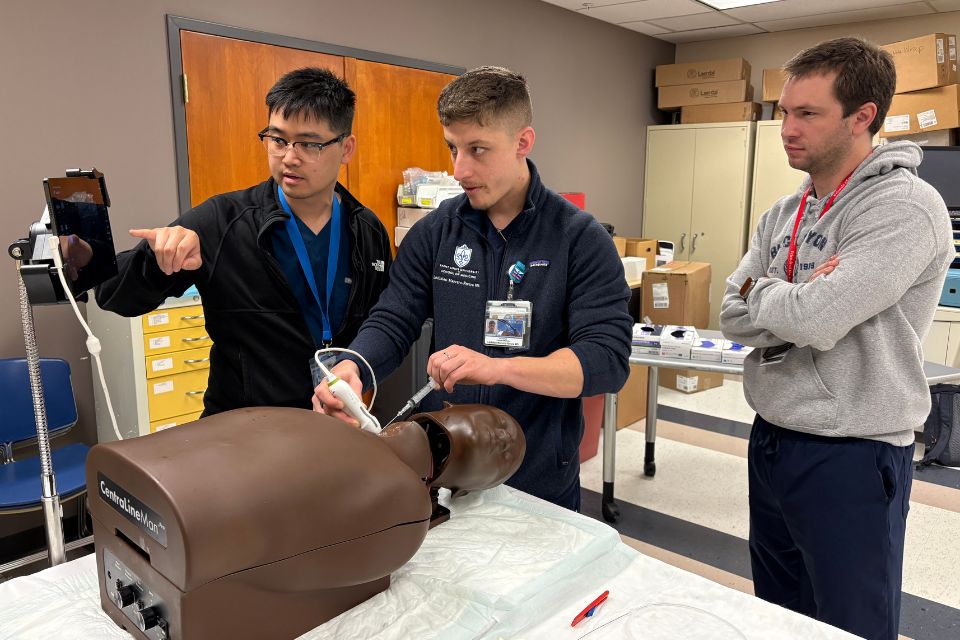Didactics
Learn more about seminars, lecture series and other learning opportunities offered as part of the internal medicine residency.
Morning school is protected time held two to three hours every other week. During this time, residents cover key clinical topics using cases and small group discussion. There is also content related to professional development and wellness.
This hour-long conference covers a wide range of material, including:
- Lectures and small group work based on core internal medicine topics
- Chief-led housestaff meetings for feedback and updates on upcoming events
- "Stump the Chump," during which an esteemed faculty member will describe their reasoning process for a challenging case
- Senior talks, during which third-year residents give evidence-based presentations on topics of their own choosing
- A patient safety conference that is run by the QI chief and includes a review of safety or mortality events
- Grand Rounds, which are held every Friday and include a department-wide presentation on an internal medicine topic
Each resident is assigned a coach, who is a core faculty member or associate program director in the residency program. Coaches will meet with residents at least twice a year to asses program progress, provide guidance and help develop an individualized learning plan.
The leadership team meets weekly to discuss ways to improve the program and help each individual resident thrive. The department is full of people who are invested in residents' success, and finding mentors is both easy and encouraged. Many are available to guide residents who want sub-specialty careers or who plan on practicing primary care.
PROMOTE
PROMOTE is a resident-led leadership track that provides trainees with opportunities for near-peer teaching, curriculum innovation, faculty mentorship and scholarly publication. Residents who complete the training will be awarded medical education leadership distinction at graduation.
Applications from first-year residents will be accepted Jan. 1-5, 2026.
- Professionalism: emphasizing the importance of ethical and professional behavior
- Research: encouraging involvement in scholarly research to advance medical knowledge
- Outreach: fostering community engagement and service
- Mentorship: providing guidance from experienced attending physicians
- Training: ensuring comprehensive clinical and educational training
- Excellence: striving for excellence in all aspects of residency training
Point-of-Care Ultrasound
Point-of-Care Ultrasound (POCUS) enhances beside evaluation by providing real-time diagnostic information that complements the traditional history and physical examination. Leading internal medicine societies now actively support POCUS education and clinical integration. Recognizing the growing importance of POCUS in clinical practice, our Internal Medicine Residency Program has fully integrated POCUS training into the core curriculum.
Residents participate in comprehensive POCUS education throughout the year, including scheduled didactic sessions, workshops with standardized patient scanning, and bedside diagnostic and procedural training. All residents have the opportunity and are encouraged to pursue diagnostic POCUS and procedural certifications as part of their professional development.
- Scheduled POCUS teaching session as part of the longitudinal core curriculum
- Ready access to handheld and cart-based POCUS devices to support image portfolio development
- Individualized, structured feedback on all submitted portfolio images
- Direct bedside mentorship from POCUS faculty
- Peer learning through resident-driven conferences featuring POCUS topics
- Opportunities to participate in POCUS-related research and quality improvement projects
- Elective rotations with the Medicine POCUS Service, a diagnostic and procedural service within the hospital, to further refine diagnostic and procedural skills (launching soon).
